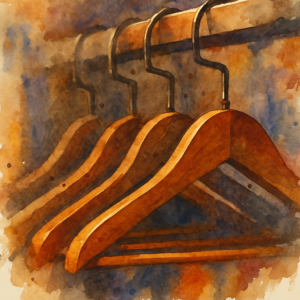Boost your French listening skills with this fast clip of French in real life. What have you thought about often? Hear that and other great phrases that caught my eye: “assez souvent”, “on faisait tomber”, “nos petites cellules”, “les uns à côté des autres”, “les uns pour les autres” Set your level and improve your…
Start quiz, type what you hear, then join the conversation.
Did you find this one challenging or easy? Did you hear something diffferent? What surprised you? What levels did you complete? Comment below and share what’s opening up for you with this quiz.
Learn French with a podcast snippet! This clip is is from Transfert s01ep01. We do not own the content. Listen to the entire episode here.
The above audio sample and transcription is from Transfert s01ep01. We do not own the content. Listen to the entire episode here.
mutual support
What’s opening up for you with this clip?
The snippet in English
Find a translation of this snippet here, how much of this did you hear?
Et j’ai cette image qui me revient assez souvent de si on faisait tomber les façades de tous les immeubles, en fait on nous verrait tous dans nos petites cellules, les uns à côté des autres, et en fait on ne se voit pas, on ne se parle pas, on n’existe pas les uns pour les autres.
And I have this image that comes back to me quite often: if we knocked down the facades of all the buildings, we’d all be seen in our little cells, next to each other, and in fact we don’t see each other, we don’t talk to each other, we don’t exist for each other.
The above translation from Deepl
What does “assez souvent” mean?
The phrase “assez souvent” in French translates to “quite often” or “fairly often” in English. It’s used to describe the frequency of an occurrence or action that happens regularly, but not necessarily very frequently.
Breakdown and Context:
- “Assez”:
- This word means “quite” or “fairly” in English and is used to moderate the extent or degree of something.
- “Souvent”:
- “Souvent” means “often.”
- Combined Meaning:
- When combined, “assez souvent” means something occurs with moderate frequency – more than occasionally but not constantly.
Usage and Context:
- Describing Frequency:
- Used to indicate that an event or action happens regularly, but not to the point of being extremely frequent.
- Example: “Je vais assez souvent au cinéma.” (I go to the cinema quite often.)
- Not a Fixed Expression:
- “Assez souvent” is not a fixed expression or idiom; it’s a straightforward description of frequency.
Cultural Notes:
- In French, “assez souvent” is a common way to describe the frequency of events or actions in everyday conversation.
In Summary:
“Assez souvent” means “quite often” or “fairly often” in French. It’s used to describe something that happens with a moderate degree of frequency – not extremely frequent but more than occasionally. The phrase combines “assez” (quite/fairly) with “souvent” (often) to convey this level of frequency.
What does “on faisait tomber” mean?
In the phrase “si on faisait tomber les façades de tous les immeubles,” “on faisait tomber” translates to “if we were bringing down” or “if we were knocking down.” Here, it specifically refers to the hypothetical or contemplative action of removing or collapsing the façades of buildings.
Usage and Context:
- Hypothetical or Imaginative Scenario:
- This construction is used to envision a scenario where the façades of buildings are being brought down.
- It implies a large-scale or significant change to the urban landscape or architecture.
Grammatical Structure:
- Conditional Form:
- “Si on faisait tomber” uses the imperfect tense in a conditional structure, indicating a hypothetical or speculative action.
- “Faire tomber”:
- A compound verb that means “to bring down” or “to knock down.”
In Summary:
In “si on faisait tomber les façades de tous les immeubles,” “on faisait tomber” means “if we were bringing down” or “if we were knocking down.” It refers to the hypothetical action of removing the front exteriors of buildings, a phrase that could carry metaphorical weight in discussions about urban transformation, architectural change, or revealing hidden aspects of environments.
What does “nos petites cellules” mean?
“Cellules” in French translates to “cells” in English. When used in the phrase “nos petites cellules,” it literally means “our little cells.” Depending on the context, “cellules” can refer to biological cells, small rooms, or units within a larger structure.
Possible Contexts:
- Biological Cells:
- In a scientific context, it might refer to the basic structural units of life. “Nos petites cellules” could be a reference to human or animal cells, implying a discussion about biology or physiology.
- Small Rooms or Spaces, or Prison cells
- “Cellules” can also mean small rooms or compartments, often in a context like prisons, monasteries, or any small living quarters. Here, “nos petites cellules” could be a metaphorical way of referring to personal spaces, such as apartments or offices.
- The term “cellules” in French can mean “prison cells” in the appropriate context. “Cellules” also has the specific meaning of “prison cells” when used in a context related to imprisonment.
- Units within a System:
- In a broader sense, “cellules” might refer to units or components within a larger system, possibly used metaphorically to talk about individual’s roles or positions within a society or organization.
In Summary:
“Cellules” in “nos petites cellules” means “cells” in “our little cells.” The interpretation depends on the context, ranging from biological cells to small rooms or units within a larger structure or system. It can be both a literal and metaphorical term, used to describe physical spaces, biological entities, or conceptual units.
What does “les uns à côté des autres” mean?
The phrase “les uns à côté des autres” literally translates to “one beside the other” in English. It describes a physical arrangement where individuals or objects are placed side by side.
Usage and Context:
- Physical Proximity:
- Typically used to describe how people or things are situated next to each other.
- Example: “Les livres sont rangés les uns à côté des autres sur l’étagère.” (The books are arranged one beside the other on the shelf.)
- Indicating Closeness Without Interaction:
- Can imply proximity without necessarily suggesting interaction or connection.
- “Les étudiants travaillaient les uns à côté des autres, mais chacun sur son propre projet.” (The students were working one beside the other, but each on their own project.)
In Summary:
“Les uns à côté des autres” means “one beside the other”, referring to a situation where individuals or objects are placed side by side. It can be used both in a literal sense for physical arrangements and metaphorically to imply situations of proximity without significant interaction or connection.
What does “les uns pour les autres” mean?
The phrase “les uns pour les autres” translates to “one for another” or more idiomatically as “each for the other” or “mutual support” in English. It reflects the idea of mutual assistance, cooperation, or interdependence among a group of people.
Usage and Context:
- Emphasizing Community and Solidarity:
- Often used to highlight the concept of community, where members support and look out for each other.
- Example: “Dans cette communauté, ils sont vraiment les uns pour les autres.” (In this community, they really are there for each other.)
- Indicating Reciprocal Help:
- Can refer to situations where individuals help each other out reciprocally.
- “Les voisins doivent être les uns pour les autres en ces temps difficiles.” (Neighbors must be there for each other in these difficult times.)
Fixed Expression:
- “Les uns pour les autres” is a fixed expression in French, conveying a specific idea of mutual support and cooperation. It’s not just a literal collection of words but a phrase with a cultural and communal connotation.
In Summary:
“Les uns pour les autres” means “one for another” or “each for the other”, signifying mutual support and cooperation within a community or group. It’s a phrase that emphasizes the importance of solidarity and reciprocal assistance, often used in contexts where the strength of community and social bonds are highlighted.
This clip is from the “Transfert” podcast
Produced by slate.fr, “Transfert” is a unique French podcast that offers an immersive listening experience. Each episode features real-life stories narrated by the people who lived them.
These personal narratives cover a wide range of human experiences and emotions, providing listeners with profound insights into the lives and minds of others. The storytelling is intimate and engaging, making it an excellent resource for French language learners to improve their listening skills while connecting with compelling, authentic content.
Improving your French Listening Comprehension with Podcasts
On this site, fast spoken French is finally accessible to all levels. The tool break podcasts into short clips each set to transcription fill-in-the-blank practice. My favorite practice in class is always dictées. While they can seem overwhelming at first, the confidence boost and skills payoff for doing the work pays off. They’re perfect for anyone at any level, from advanced students to those just starting.
We use podcasts and our practice exercises to make it possible for anyone, anywhere to immerse in French with fun and ease. Join us and enjoy French, one short clip at a time. Let’s learn together!
Make the most of the site:
- Daily Podcast Listening: Start your day with a French podcast from our collection. Choose episodes that align with your interests to keep it engaging.
- Active Listening Practice: As you listen, try to pick out key phrases and vocabulary. Use our daily quizzes to test your understanding and reinforce learning.
- Repeat and Shadow: Listen to the same podcast segment multiple times. Try to mimic the pronunciation and intonation to improve your spoken French.
- Note-taking: Jot down new words or phrases you encounter. Review these notes regularly to enhance vocabulary retention.
- Reflect and Respond: After each episode, summarize the main points in French, either in writing or aloud. This helps in consolidating your learning and improving your expressive skills.
- Read More:
- True Beginner or A1 Learners: discover tips learning with podcasts at an introductory level.
- Discover all the podcast clips on FrenchIRL organized by level.
- Top Tips: Here’s how I make the most of my own site.
I created the French In Real Life project because I wanted to understand more than just my teacher and youtubers who cater to learners. I wanted to understand the French I hear in France. I hope you can benefit as much as I have. Become a supporting member for access to all clips.
Boost your French listening skills with this fast clip of French in real life. What have you thought about often? Hear that and other great phrases that caught my eye: “assez souvent”, “on faisait tomber”, “nos petites cellules”, “les uns à côté des autres”, “les uns pour les autres” Set your level and improve your…
Start quiz, type what you hear, then join the conversation.
Did you find this one challenging or easy? Did you hear something diffferent? What surprised you? What levels did you complete? Comment below and share what’s opening up for you with this quiz.
This clip is from the “Transfert” podcast
Produced by slate.fr, “Transfert” is a unique French podcast that offers an immersive listening experience. Each episode features real-life stories narrated by the people who lived them.
These personal narratives cover a wide range of human experiences and emotions, providing listeners with profound insights into the lives and minds of others. The storytelling is intimate and engaging, making it an excellent resource for French language learners to improve their listening skills while connecting with compelling, authentic content.
Improving your French Listening Comprehension with Podcasts
On this site, fast spoken French is finally accessible to all levels. The tool break podcasts into short clips each set to transcription fill-in-the-blank practice. My favorite practice in class is always dictées. While they can seem overwhelming at first, the confidence boost and skills payoff for doing the work pays off. They’re perfect for anyone at any level, from advanced students to those just starting.
We use podcasts and our practice exercises to make it possible for anyone, anywhere to immerse in French with fun and ease. Join us and enjoy French, one short clip at a time. Let’s learn together!
Make the most of the site:
- Daily Podcast Listening: Start your day with a French podcast from our collection. Choose episodes that align with your interests to keep it engaging.
- Active Listening Practice: As you listen, try to pick out key phrases and vocabulary. Use our daily quizzes to test your understanding and reinforce learning.
- Repeat and Shadow: Listen to the same podcast segment multiple times. Try to mimic the pronunciation and intonation to improve your spoken French.
- Note-taking: Jot down new words or phrases you encounter. Review these notes regularly to enhance vocabulary retention.
- Reflect and Respond: After each episode, summarize the main points in French, either in writing or aloud. This helps in consolidating your learning and improving your expressive skills.
- Read More:
- True Beginner or A1 Learners: discover tips learning with podcasts at an introductory level.
- Discover all the podcast clips on FrenchIRL organized by level.
- Top Tips: Here’s how I make the most of my own site.
I created the French In Real Life project because I wanted to understand more than just my teacher and youtubers who cater to learners. I wanted to understand the French I hear in France. I hope you can benefit as much as I have. Become a supporting member for access to all clips.
Boost your French listening skills with this fast clip of French in real life. What have you thought about often? Hear that and other great phrases that caught my eye: “assez souvent”, “on faisait tomber”, “nos petites cellules”, “les uns à côté des autres”, “les uns pour les autres” Set your level and improve your…
Start quiz, type what you hear, then join the conversation.
Did you find this one challenging or easy? Did you hear something diffferent? What surprised you? What levels did you complete? Comment below and share what’s opening up for you with this quiz.
 Kids Songs
Kids Songs 







